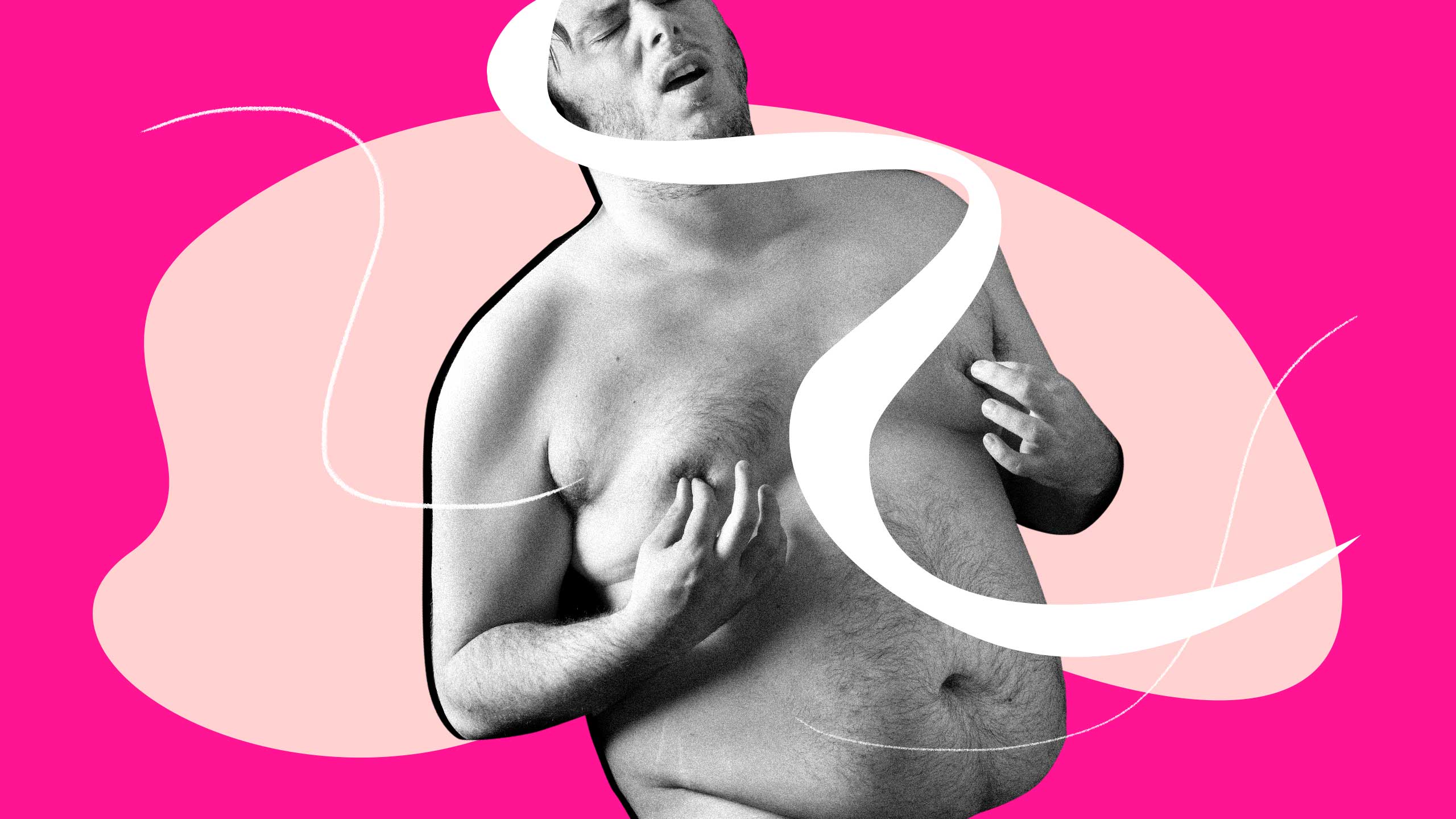Growing up as a fat person teaches you to hate yourself. When you see my body type in the media it’s almost always treated as a tragic problem to be fixed, or it’s the butt of a cruel joke. But fatphobia is about more than just mean jokes or a simple dating preference. It’s an ideology that treats fat people as less than fully human—and that has real impacts on our health, our self-esteem and our lives.
Hatred toward fatness is deeply ingrained. The body-positive ideal is that we should all “love our bodies,” but that’s difficult to embrace when you’ve spent decades internalizing messages that your body is disgusting and wrong. Fatphobia is such a part of our culture that even finding the tools to begin unlearning it can be a challenge. People find different ways to do this—some read books or study history, others look at medical research, dance or cook. But for me, there is sex—wet, filthy, kinky sex where bellies slap and flesh wobbles in shameless ecstasy. Sex where my partners treat every flabby fold as an exquisite curve to caress. Sex filled with gleeful giggles as I watch my partner’s ass jiggle during a good spanking, and aftercare where bellies are kissed and groped and appreciated as a desirable part of the body. I love sex for the moments where we revel in intimacy and carnal joy free from awkwardness, anxiety and body image issues.
“I love sex for the moments where we revel in intimacy and carnal joy free from awkwardness, anxiety and body image issues.”
A few years ago, a partner of mine forever changed how I thought about my stretch marks: she stroked them and watched me squirm beneath her fingers. She told me that she loved them; that she loved seeing my response to her teasing the sensitive skin. That was the first time I realized that my fatness could be not only tolerated but actively desired as well. That moment began a long journey toward changing the way I thought about something that, until then, had brought me only shame. Ever since, sex and intimacy have played a huge part in reshaping my relationship with my body.
Of course the actual process of changing how you view your body is never going to be straightforward. As much as I wish that singular moment had “fixed” my body image, it takes time and practice to develop new patterns of thinking about yourself. Part of the difficulty is that it took a long time to work out what fat beauty could look like for me. Even where it hasn’t been co-opted by straight-sized and smaller fat people, the body positive movement is overwhelmingly focussed on cis women. In the gay community there are bears: big hairy men with rounds bellies and thick limbs—it’s a form of fat sexiness, but one inextricably linked to a queer masculinity that I cannot relate to myself. As a fat enby, I can admire and desire the people who embody these different beauty ideals, but I don’t see myself reflected in them. Like just about everything in this world, beauty standards end up tied to the gender binary, with enbies left to figure it out for themselves.
Instead of established role models of fat enby sexiness, we must make do with rare glimpses of queer beauty. I love the sexy fat queers that I have found online; when I started to change how I thought about my body, they represented perspectives and possibilities that I couldn’t yet imagine. They helped me feel less alone in navigating the overwhelming hatred that characterizes so many popular opinions on fatness.
One of the first places I found examples of fat sexuality was CrashPad, a queer indie porn studio based out of San Francisco with a focus on self expression. The day I first came across their archive of ethical smut was revolutionary. I saw queer people with bodies like mine being respected, desired and fucked in ways I’d never seen before. That was fat sex that was playful and intimate, filthy and joyful, and portrayals of queer sexuality that included fatness without being fetishistic. For the first time I saw people like me express sexual agency and be desired for who they are.
Perhaps a less obviously sexy fat icon of mine is Da’Shaun Harrison, a fat Black activist based in Atlanta. The impact they have is more through their intellect than explicit expressions of fat enby sexuality. Their brilliant writing focuses on the intersections of their experiences, and the way they express these identities is powerful. But more than that, they embody an absolute refusal to be ashamed of who they are. Seeing a version of non-binary fatness that is powerful, joyful and just happens to also be fucking hot is something I aspire to every day.
But as much as I treasure the positive representations I have found, there simply aren’t enough of us to form the culture and community I long for. Too few of us express this side of ourselves, and those who do are often chased away by the fatphobia perpetuated by our culture. Publicly expressing this side of ourselves as fat queer people leaves us exposed to the hatred of those who condemn us.
“Thinking about how I find my fat partners attractive has helped me see how my own body could be attractive, too.”
While I have struggled with a lack of community in the broader sense, my partners have obviously been an important part of my personal journey. When I’m feeling insecure about the way a dress clings to my body, they’re there to blush and tell me how good I look. When somebody yells at me in the street for daring to expose a few inches of belly, they’re there as I spiral down, to hold me and threaten terrible vengeance in my honour. I’ve also made a conscious effort to think about how I desire my fat lovers: plump asses I long to spread open and devour; thick, powerful thighs I dream of holding me in place as they use my mouth; and everywhere soft curves I yearn to cuddle. Thinking about how I find my fat partners attractive has helped me see how my own body could be attractive, too. Often we’re so much crueller to ourselves than we ever would be to others.
When talking about fat sex we also need to talk about the issue of fetishization. In some ways, it reflects the ideas explored in this article, challenging what is seen as desirable and reprogramming the way people think about bodies. But fetishization dehumanizes fat people, reducing us to objects—yes, objects of desire, but objects just the same. Not that being treated as a sex object is something I’m entirely opposed to, but when that’s the entirety of how someone sees you it’s degrading in all the wrong ways. Ultimately, fat fetishization is simply another form of fatphobia; obsession with and revulsion by fat bodies are two sides of the same coin. There’s a somewhat blurry line between the people who are attracted to me as a fat person and those who see me as a fat body they can project their own fantasies upon. To me, though, the difference is clear: it’s about being seen as attractive on my own terms. Finding ways to do this, to unlearn years of fatphobia and forge a new relationship with my body is often a struggle.
It can be difficult to adapt to a healthy body image when the dominant culture tells me that it’s right to hate this body. Loving my body isn’t always an achievable goal, but learning to live with it (and to forgive myself when I fall short) is one of the best things I’ve ever done. The work never ends and it’s fucked up that I have to constantly struggle against the society I live in to not hate my body. But if that’s the price to pay to feel comfortable in my skin, I’ll gladly make the trade.


 Why you can trust Xtra
Why you can trust Xtra


